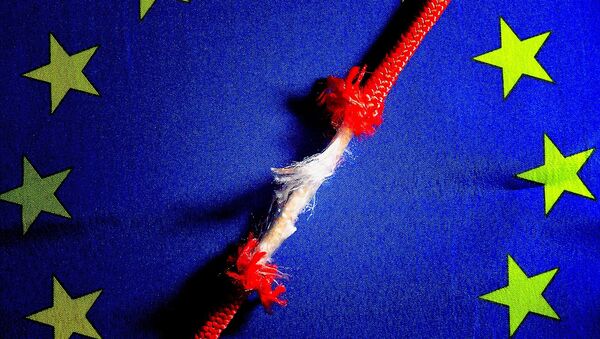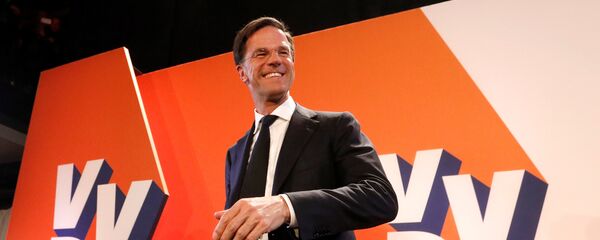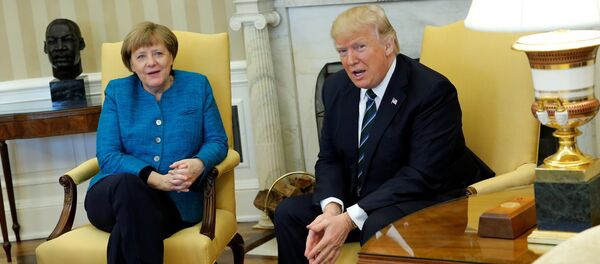Disappointed that the Netherlands' Party for Freedom (PVV) was beaten into second place, she said that the governing center-right People's Party for Freedom and Democracy (VVD) party led by Mark Rutte was helped by a last-minute spat with Turkey.
The Dutch authorities refused to allow the Turkish government to hold rallies in the Netherlands in support of a "yes" vote in an upcoming referendum on whether to give President Recep Tayyip Erdogan more executive powers.
"Of course we would have liked him to get a better result, to become the strongest force in Holland, but the few days have shown that the open goal from Ankara benefited the Rutte government and not the initiator of a consistent anti-Turkey policy, Geert Wilders," Petry said.
"In this respect, you have to say that once again the people have not been brave enough. Compared to the last elections, however, the PVV result is an improvement and lost the so-called victor's votes. Similarly, the Social Democrats were almost wiped out."
The AfD leader said that Wilders gained a partial victory because his key policies set the agenda of the Dutch elections. Like other mainstream parties in Europe, the center-right VVD sought to attract votes from the hard-right PVV by adopting some of its rhetoric.
"One must realize that in the end, Rutte made Wilders the topic of the elections. That is, the issues were clearly defined as the great problems facing Holland and Europe: Islam and the future of the EU. In this respect, the established parties can no longer say that they are setting the West's agenda."
"On the other hand, we must also say quite clearly that if we do carry out a clear correction of (the political) course in all European countries in the next few years, the European continent will be finished, just because of the demographics of migrants," Petry said.
For example, in November Angela Merkel announced plans to deport 100,000 failed asylum seekers from Germany.
Schulz has proposed making a deal with Egypt similar to the one the EU made with Turkey, which would see the EU finance refugee camps there and prevent asylum seekers from traveling to Europe while their claims are processed.
"The new parties have increased the political pressure so the established parties can't ignore it any longer. The question is, are there cosmetic corrections? For example, we see in Germany that the SPD has called for asylum reception centers for refugees or asylum seekers in North Africa. At the same time, their candidate for chancellor, Martin Schulz, wants to allow family reunification for Syrian families. There isn't much consistency," Petry said.
"The only question is whether the citizens are aware of this. And since certain parties still receive a better reception in the media, they can sell their cosmetic corrections much better than other parties. However, in general it is clear that Europeans want to preserve their countries, that they already see these problems. Whether they are ready to vote for change, as was the case in America, is another question. You can see that in general, there is still much less polarization in Europe than in the United States."




